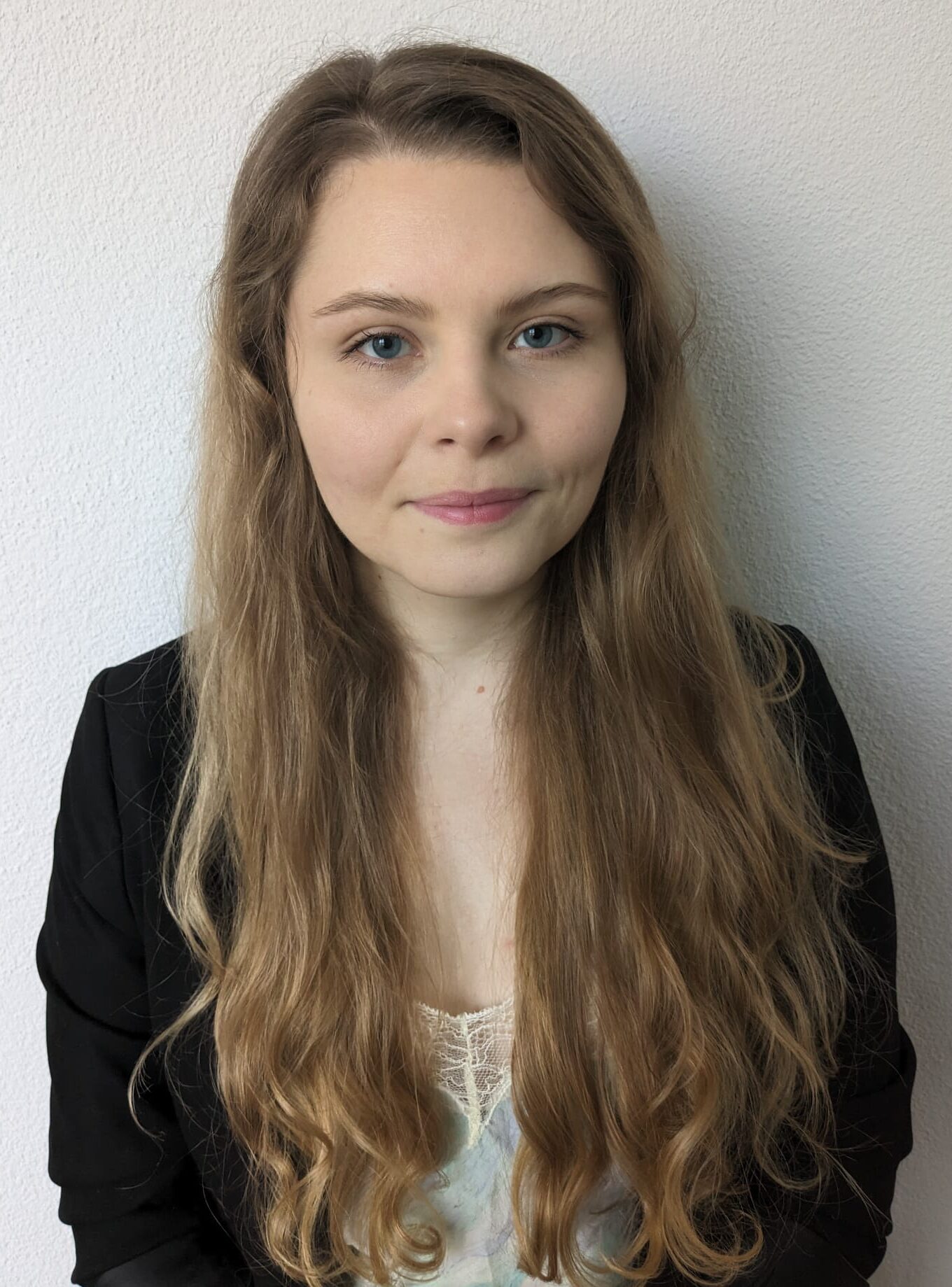
Dr. Ann-Kathrin Arend
Senior Scientist / Postdoc
Fachbereich Psychologie
Hellbrunner Straße 34, 5020 Salzburg
Tel.: +43 662 80445164
E-Mail:
Web: https://www.eat.sbg.ac.at/team/ann-kathrin-arend
Bluesky: @AnnKathrinArend.bsky.social
Sprechstunde: nach Vereinbarung
Forschungsgruppe: Eating Behavior Laboratory Salzburg
Ausbildung:
- 2018-2022 Doktorat Psychologie an der Paris Lodron Universität Salzburg
- 2016-2018 Master Psychologie an der Paris Lodron Universität Salzburg
- 2013-2016 Bachelor Psychologie an der Paris Lodron Universität Salzburg
Akademische Stellen:
- seit Oktober 2023: Senior Scientist am Fachbereich für Psychologie, Paris Lodron Universität Salzburg (75%) und Postdoc im FWF Projekt “Cognitive affective Mechanisms of Food Biases Trainings” [P 345428] (25%)
- 2022-2023: Postdoc am Fachbereich für Psychologie, Paris Lodron Universität Salzburg (50%) und im FWF Projekt “Cognitive affective Mechanisms of Food Biases Trainings” [P 34542-8] (50%)
- 2018-2022: Doktorandin im ERC Projekt “ Transdiagnostic view on eating disorders and obesity and new approaches for treatment”; CCNS (Centre for Cognitive Neuroscience), Fachbereich für Psychologie, Abteilung für Gesundheitspsychologie, Paris-Lodron University Salzburg
- 2018: Studienassistentin Fachbereich für Psychologie; Abteilung für Klinische Psychologie, Psychotherapie und Gesundheitspsychologie, Paris-Lodron Universität Salzburg
Forschung:
Seit meinem Bachelor Studium interessiere ich mich für Essverhalten. In meiner Masterarbeit untersuchte ich mittels ecological momentary assessment (EMA) den interaktiven Zusammenhang von sozialen und emotionalen Kontextfaktoren auf das Essverhalten im Alltag. Meine aktuelle Forschung fokussiert Emotionales Essverhalten in gesunden Individuen, Individuen mit Gewichtsstörungen und Individuen mit Essstörungen. Ich verwende smartphone-basierte Methoden (EMA, EMI, JITAI), Experimentelle Labor-Designs (Emotionsinduktion, Bilder-Ratings), Psychophysiologische Maße (EMG, EOG, ECG) und klinisch diagnostische Interviews (SKID, EDE)
Publikationen (Beispiele):
- Arend, A.-K., Kaiser, T., Pannicke, B., Reichenberger, J., Naab, S., Voderholzer, U., & Blechert, J. (2023). Toward Individualized Prediction of Binge-Eating Episodes Based on Ecological Momentary Assessment Data: Item Development and Pilot Study in Patients With Bulimia Nervosa and Binge-Eating Disorder. JMIR Medical Informatics, 11, e41513. link
- Arend, A.-K., Schnepper, R., Lutz, A. P. C., Eichin, K. N., & Blechert, J. (2022). Prone to food in bad mood—Emotion‐potentiated food‐cue reactivity in patients with binge‐eating disorder. International Journal of Eating Disorders, 55(4), 564-569. link.
- Arend, A.-K., Blechert, J., Pannicke, B., & Reichenberger, J. (2021). Increased screen use on days with increased perceived COVID-19-related confinements–A day level ecological momentary assessment study. Frontiers in Public Health, 8, 1062. link.
- Google Scholar Profile
- Orcid Profile




